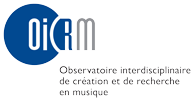[Thesis in French]
Research conducted in Quebec (Garon, 2009), France (Donnat, 2011) and the United States (Kolb, 2001) confirm a general phenomenon: the classical music audience is aging. If such audiences are mainly known for having a high level of education, then why aren’t university students nowadays more present in classical music concert halls?
This study explores the issue firstly by historical research and interviews with classical music organizations in Montreal in order to understand their audience development strategies from 2004 to 2014. Secondly, we explore it through a survey with 555 university students in the city to document their relationship with music.
Our analysis, supported by a bibliography of Sociomusicology and Sociology of Cultural Practices, confirms trends such as the “cultural omnivorism” and the musical eclecticism of young academics. It also shows us a positive reception of classical works, although incompatible with the aesthetic criteria used to describe their favorite music genres. From this paradox, we study the strength of extra-musical motivations that lead them to go to live concerts. We also examine their favorite concert formats, as well as the impact of music education on their tastes, the influence of the parents, the internet and the new technologies.
Finally, we confirm the low investment in activities among university students by the classical music organizations in Montreal, even though young academics represent a great potential for the renewing of classical music audiences.








